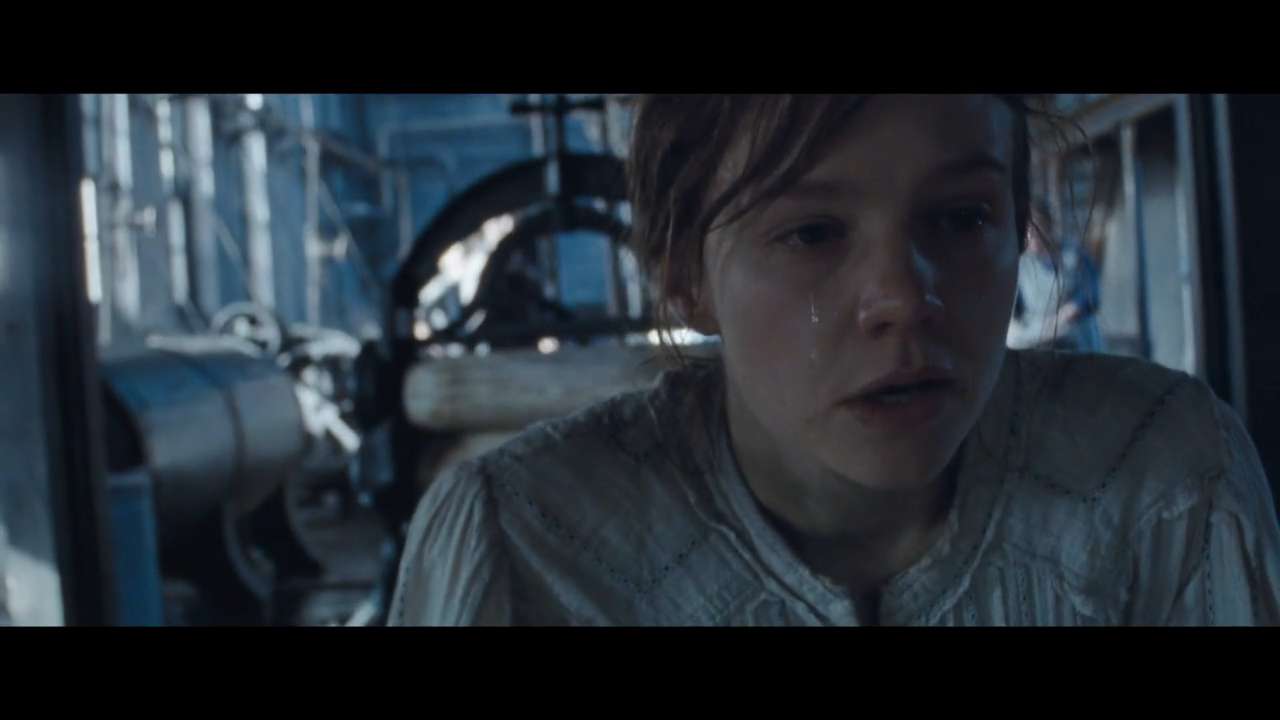Carey Mulligan 'fights' for roles such as crusading 'Suffragette'

In 1964, women's suffrage paraded to theaters in a brief, but memorable scene of Mary Poppins as housewife Mrs. Banks (Glynis Johns) proudly sang her allegiance with "soldiers in petticoats and dauntless crusaders for women's votes."
Half a century later, the movement gets the big-screen treatment in Suffragette (opens Friday in New York and Los Angeles), which is written (Abi Morgan) and directed (Sarah Gavron) by women. The period drama stars Carey Mulligan as the fictional Maud Watts, a working-class launderer in 1910s Britain who takes up arms in the fight for equal pay alongside other activists (played by Helena Bonham Carter and Meryl Streep, among others).
The fact that it's the first feature film about the subject struck Mulligan, 30, as "odd, more so when I found out the details of what the women went through," she says. Beforehand, "I kind of had a Mary Poppins idea in my head. I was surprised, because there are so many good stories in terms of plain old storytelling, not just in terms of representation of women. That it's taken 100 years to tell this story about basic human rights in our country, I found kind of amazing."
Three weeks before the film's London shoot last year, Gavron and Morgan set up a makeshift library of books and photocopied documents in a rehearsal room, and encouraged the cast to take home readings daily to discuss. Through her research, Mulligan discovered the militant aspect of the movement, including suffragettes who destroyed storefronts, cut telegraph wires and rioted in the streets, which often resulted in police brutality and arrests. Detectives tracked and photographed activists, which "goes to show the threat they felt they were under from these women, that they went to these extreme measures to keep tabs on them," Mulligan says.
Such rough-and-tumble aspects of the role were a treat for the actress, who has shown grit with incendiary turns in Shame, Drive and Far From the Madding Crowd.
She particularly enjoyed blowing up a house in a later scene of Suffragette, because "I've never been in an action film, and I don't know if I ever will be, so that was a fun thing to get to do," Mulligan says. The riot sequences were also thrilling, because Gavron used "stuntmen that we could kick and fight and not hurt anyone, rather than a supporting actor who doesn't want to get hit in the face."
Believably transforming Maud from an ordinary woman into a radical foot soldier was part of the appeal to Mulligan. "She starts the story a very normal person, just trying to take care of her family and be respectable, and she doesn't really have a voice — she's just surviving, rather than living," Mulligan says. By joining the movement, "she becomes this sort of political animal by the end. I thought that would be a difficult journey to tell."
Gavron says she knew Mulligan could pull off the "epic, emotional" transition when she cast her two years ago. Plus, "it's always a good sign when she agrees to come on board, because she is very selective and goes for roles she is confident she can do."
Mulligan earned a Tony Award nomination this summer for her Broadway role in Skylight and gave birth five weeks ago to a daughter, Evelyn (a name "just picked out of thin air," she says), with husband Marcus Mumford of Mumford & Sons. Though she hasn't always been so discerning about projects — averaging one to two films a year, if that — she says she became more selective after her Oscar-nominated breakout in 2009's An Education. (Experts at awards site GoldDerby.com predict Mulligan could be nominated again for Suffragette.)
Back then, "my agent said, 'You're in this really lucky part of your career where you don't have to work all the time and you can be a bit more choosy. It's very transient and it might pass, but once you're in it, you shouldn't take a role unless you can't bear the idea of anyone else doing it,' " Mulligan says. "And that's how I've been. I've done stuff if it keeps me up at night and I think about it weeks after I've read it.
"If I think it would kill me to see another actress play it, I fight to do it."